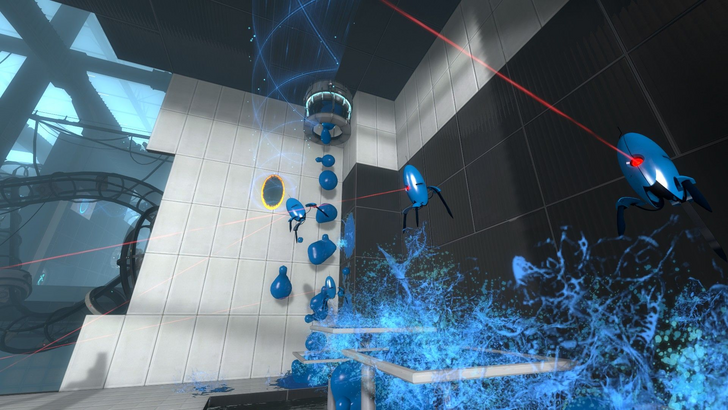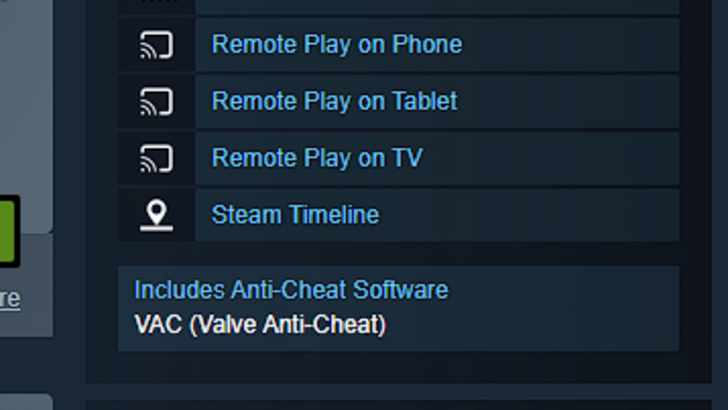 Steam mandates all developers to disclose their game's use of kernel-mode anti-cheat, a move designed to enhance transparency and address player concerns. This article delves into the details of Steam's new anti-cheat disclosure policy and its implications.
Steam mandates all developers to disclose their game's use of kernel-mode anti-cheat, a move designed to enhance transparency and address player concerns. This article delves into the details of Steam's new anti-cheat disclosure policy and its implications.
Steam's New Anti-Cheat Disclosure Feature
Mandatory Kernel-Mode Anti-Cheat Disclosure
 Valve's recent Steam News Hub announcement introduces a feature requiring developers to specify their game's use of anti-cheat software. Accessible through the Steamworks API's "Edit Store Page" section, this update allows developers to clearly state whether their games utilize any anti-cheat technology.
Valve's recent Steam News Hub announcement introduces a feature requiring developers to specify their game's use of anti-cheat software. Accessible through the Steamworks API's "Edit Store Page" section, this update allows developers to clearly state whether their games utilize any anti-cheat technology.
While disclosure for non-kernel-based anti-cheat remains optional, the mandatory declaration for kernel-mode anti-cheat directly addresses community anxieties surrounding these systems' potential invasiveness.
 Kernel-mode anti-cheat, operating at a low system level to detect malicious activity, has sparked considerable debate. Unlike traditional methods that analyze in-game behavior, kernel-mode solutions access deeper system data, raising potential performance, security, and privacy concerns for some players.
Kernel-mode anti-cheat, operating at a low system level to detect malicious activity, has sparked considerable debate. Unlike traditional methods that analyze in-game behavior, kernel-mode solutions access deeper system data, raising potential performance, security, and privacy concerns for some players.
This Valve initiative responds to both developer and player feedback. Developers sought a clear method for communicating anti-cheat details, while players demanded increased transparency regarding anti-cheat services and associated software installations.
 Valve's official Steamworks blog post clarifies their motivation: "We've heard from developers seeking better ways to share anti-cheat information, and from players requesting greater transparency about anti-cheat services and additional software."
Valve's official Steamworks blog post clarifies their motivation: "We've heard from developers seeking better ways to share anti-cheat information, and from players requesting greater transparency about anti-cheat services and additional software."
This change benefits both parties; developers gain a streamlined communication channel, and players receive clearer information about the software used in their games.
Mixed Community Reception
 Launched on October 31, 2024, at 3:09 a.m. CST, the update is already active. Counter-Strike 2's Steam page now prominently displays its use of Valve Anti-Cheat (VAC), showcasing the change's implementation.
Launched on October 31, 2024, at 3:09 a.m. CST, the update is already active. Counter-Strike 2's Steam page now prominently displays its use of Valve Anti-Cheat (VAC), showcasing the change's implementation.
While many applaud Valve's "pro-consumer" approach, some criticisms have emerged. Minor issues like grammatical inconsistencies and perceived awkward wording have been noted.
 Furthermore, practical questions regarding language translation of anti-cheat labels and the definition of "client-side kernel-mode" anti-cheat have been raised, highlighting the complexities involved. The frequently debated PunkBuster anti-cheat solution serves as a prominent example of this ongoing discussion. Concerns about the intrusiveness of kernel-mode anti-cheat persist for some players.
Furthermore, practical questions regarding language translation of anti-cheat labels and the definition of "client-side kernel-mode" anti-cheat have been raised, highlighting the complexities involved. The frequently debated PunkBuster anti-cheat solution serves as a prominent example of this ongoing discussion. Concerns about the intrusiveness of kernel-mode anti-cheat persist for some players.
Despite the mixed initial response, Valve's commitment to pro-consumer platform changes remains evident, underscored by their transparency regarding recent California consumer protection legislation.
The long-term impact of this update on community apprehension towards kernel-mode anti-cheat remains to be seen.










![[18+] Starlewd Valley:Re!](https://imgs.dgmma.com/uploads/37/173149215167347937c925c.jpg)




















